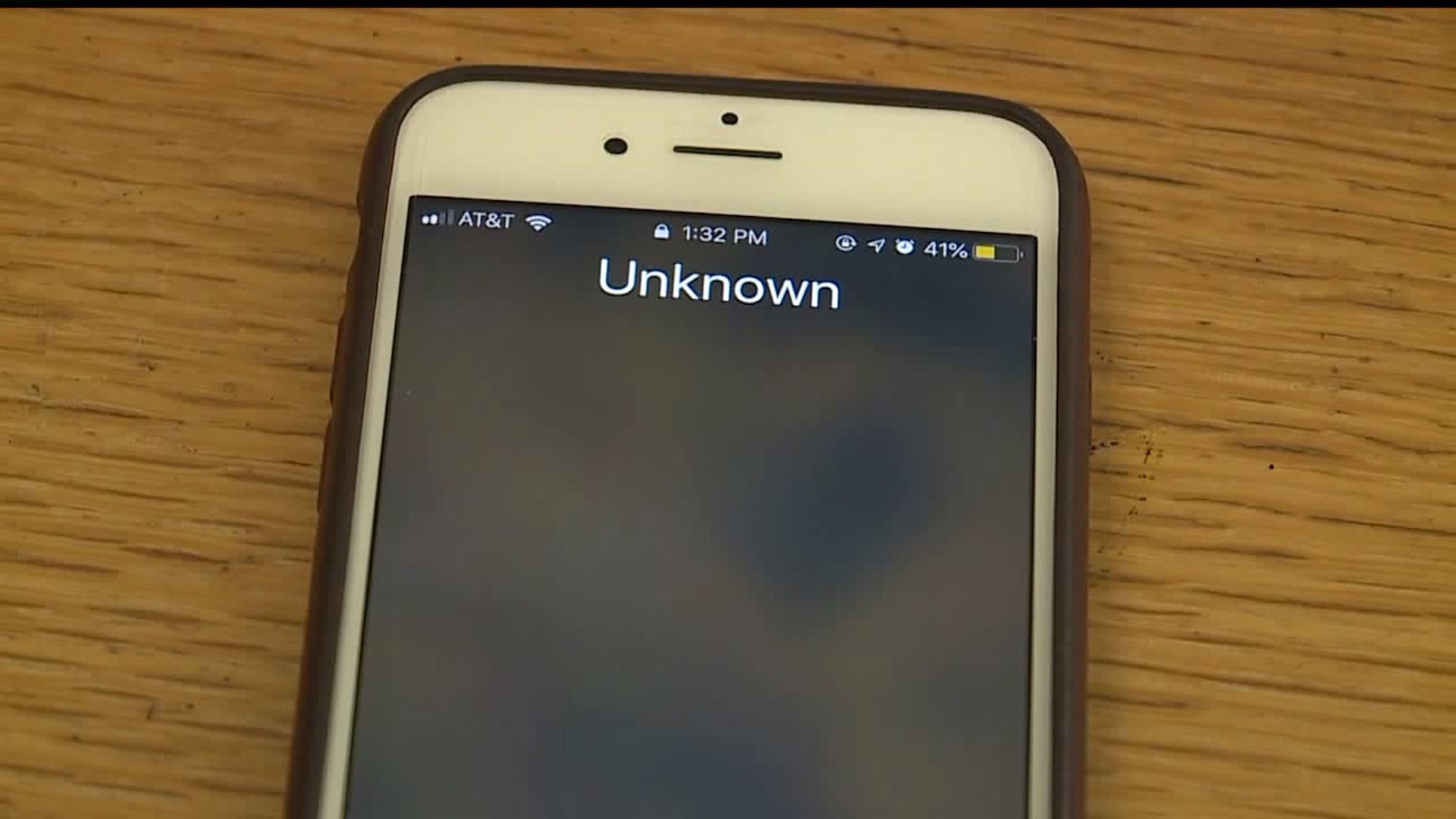One ring can cost you money.
It's a phone scam making the rounds around the country.
The Federal Communications Commission says the crooks will typically call in the middle of the night and hang up after one ring.
Then, they'll call back repeatedly.
Something people - find incredibly annoying.
"I hate them," said Barbara Haskell of York.
The scam though comes when you call that number back.
The FCC is warning these calls are coming from a 222 area code, which may look like it's from the United States.
It's not. It's from, Mauritania - an African county.
When people call the number back it charges the caller per-minute.
"I would get about 14 or 15 a week. I`m on the do not call list, but I don`t think that seems to be working," said Lona Dubs of York.
A recent FCC study finds about half the calls made to cell phone this year will be spam.
Pennsylvania Attorney General Josh Shapiro along with 41 other Attorneys General across the country are calling on the FCC to stop caller ID spoofing.
That's when the scams can make the number look like someone you know.
"Different things that just agitate the heck out of me and I don`t think there`s going to be a solution," said Dubs.
The FCC announcing it will vote in June whether to let carriers block spam calls by default.
Right now, consumers have to do that themselves by downloading apps or with tools from their wireless carriers.
There are also bills in Congress addressing the robocall problem.
A senate bill that would require carriers to verify that a number on your caller id is real.
People we spoke with say - they hope someone comes up with a solution soon.
"It`s just getting to be way, way, way too many," said Dubs.
That senate bill could also give the FCC more power to go after people behind the robocalls.
Congressman Lloyd Smucker, who represents southern York and Lancaster counties, introduced a bipartisan bill in April to require identity validation to cut down on spoofed calls and increase the civil penalties for those who intentionally disregard telemarketing restrictions.
Here are some things US regulators say you should do so you don't fall for any of the robocall related scams.
1. Don't call back numbers you don't recognize.
2. Check your phone bill each month for charges you don't recognize.
3. If you never make international calls, talk to your phone company about blocking incoming international calls - that would you could prevent disguised toll calls.
The FCC wants to hear your robocall complaints to track down who is behind them.
If you have a story you want Jackie to look into, FOX43 wants to find out.
Send her a message on Facebook to send an email to FOX43FindsOut@FOX43.com.

